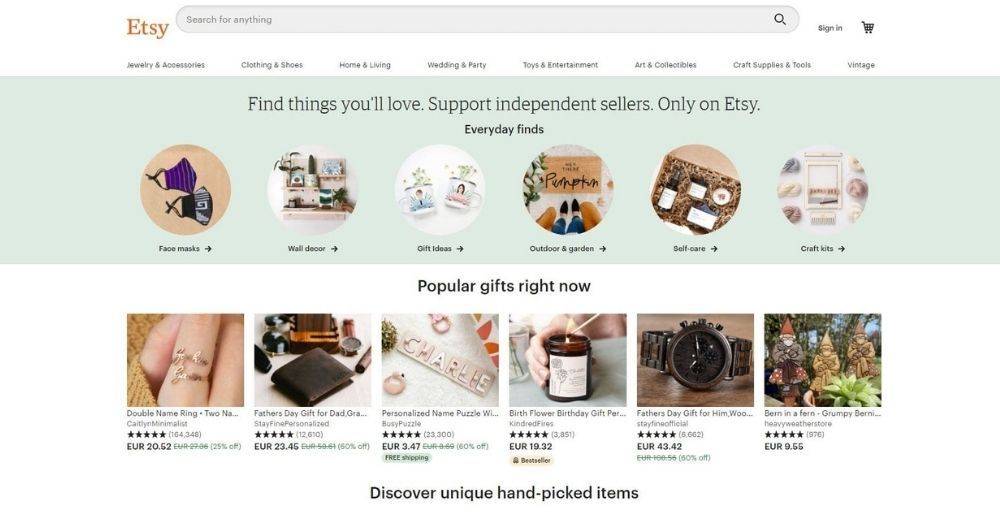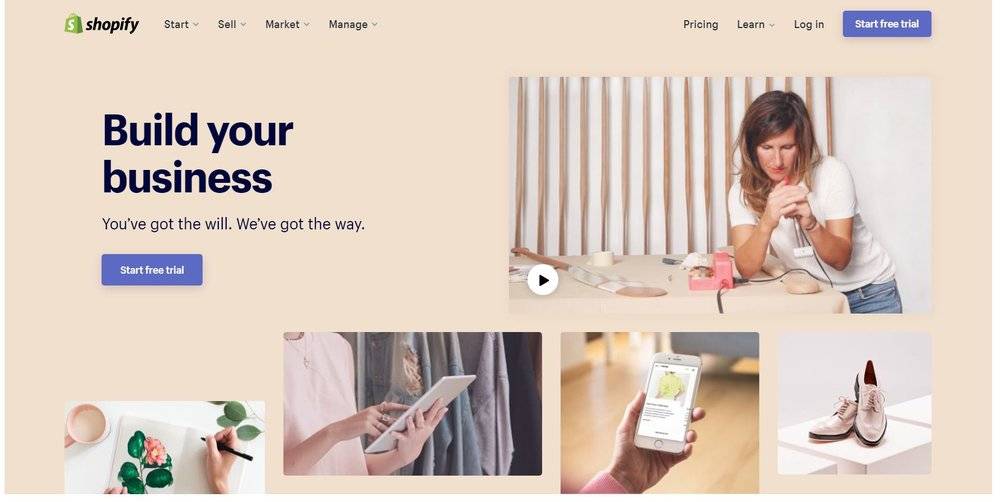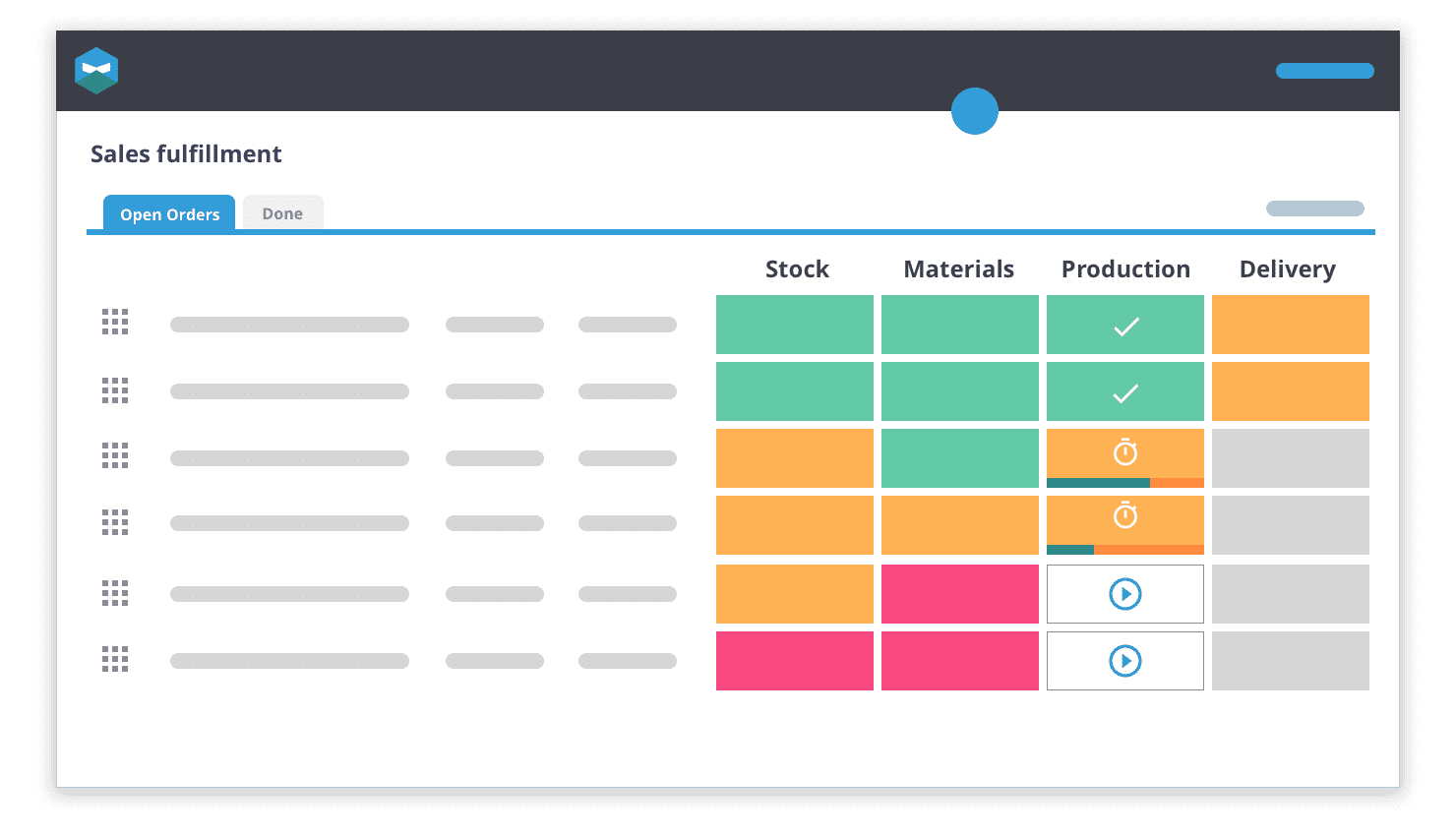Shopify vs. Etsy: Which is the best for manufacturers?
Modern manufacturers often get stuck choosing between whether to sell product on Shopify or Etsy. Here we compare the two, to see which comes out on top.
Team Katana

A big question every maker will ask themselves, should they be selling on Shopify vs Etsy?
Nowadays, it’s not uncommon to have anxiety choosing something when there are so many options available.
You’re in the supermarket, and you want to buy a tin of beans. The simplicity of this shopping trip finishes there.
Now comes the tough life decision, do you take the expensive beans or the cheapest one? High in fiber? Low in fat?
Decidophobia – The fear of making decisions.
It’s real, well you can find the term on Google anyway. Regardless of if it’s a medically observed phenomenon, the dread associated with having to make a big decision is genuine.
It can be especially stressful when you’re trying to find a platform to sell your homemade products.
Luckily, for scaling manufacturers, the options are essentially boiled down to one of two choices.
Shopify vs Etsy: which one is the best for us humble scaling manufacturers?
This guide will give you a comparison of Etsy and Shopify, which platform is the best to sell from, and how you can optimize your business.
PRO TIP: Already on Shopify or have you been toying with the idea of making an account but haven’t yet committed? Why not download our free e-book which is the ultimate Shopify guide for manufacturers?
With it, you’ll learn everything you need to know about Shopify, how to grow your business and optimize it with smart inventory software.
Without further ado, let’s begin.
Shopify vs Etsy
First things first, if you’re going to transition or pick a platform to sell from, we’re going to compare Shopify with Etsy to help you understand the difference.
The main difference between them is that Etsy is a marketplace and Shopify is an e-commerce platform.
Think of Etsy like a Facebook where artisans can sell their homemade products. While Shopify, on the other hand, is software that allows you to make an online store, manage products, inventory, payments, and shipping.
But let’s delve deeper and go through each channel separately.
PRO TIP: If you want to maximize your businesses performance you can implement a Shopify order management software to help you fulfill more orders on-time. P.S. if you’re selling on Shopify you can repurpose the program to manage your orders.
Etsy

When it comes to Shopify vs Etsy, one of the things that you need to consider is what position are you in? Are you ready to grow into a business? Or are you a one-person band?
As already mentioned, Etsy is a marketplace that allows artisans to sell handmade products, vintage goods, or craft supplies. If you’re selling other types of products, then, unfortunately, Etsy is not the place for you.
But, if you are a crafter, you can expect to find 1.7 million users selling to over 33 million buyers.
With Etsy, you can take advantage of the traffic that comes with the site without having to do much marketing yourself.
But, if someone searches for your product on Etsy, they will be able to see your competitors’ wares too. Meaning that customers can perform price comparisons, making it difficult to make sales.
However, if you’re starting out and trying to build your brand, this exposure has its advantages when establishing yourself.
Since Etsy is an online market place, you only need to create an account, upload some slick images of your products with a description to boot and you’re away.
Though the downside is you won’t be able to customize the URL or redesign your page. Etsy provides you with the barebones to get set-up and start selling.
Etsy Pricing
Product listing
$0.20
Transaction fees
5%
Payment Processing Charge
3% + $0.25
Plus
$10 a month
Premium
Launching in 2019, pricing to be announced soon
Etsy Pattern
$15 a month
What Is Plus and Etsy Pattern?
Etsy offers sellers Plus if they want more sales tools than what comes with the free plan. If you upgrade to Etsy Plus, you can get:
- More customizable features such as banner templates;
- Deals on your own web address;
- Discounts on marketing such as buying business cards;
- Email alerts to send customers once you have an item back in stock; and
- Advertising credits.
Etsy Pattern, on the other hand, is Etsy’s attempt to become an e-commerce platform, that allows you to build a website to sell your products. It has fewer restrictions than the standard Etsy marketplace, but you must be a seller on Etsy to be able to set up Etsy Pattern.
So that’s what you’re getting into if you make an account with Etsy and start selling on there.
Shopify

Getting set-up on Shopify or Etsy should be decided on what type of manufacturer you are, because if you’re a baker, then Shopify is the only choice for you since only handmade crafts are allowed on Etsy.
Shopify is not only an e-commerce platform, but it is also considered the best e-commerce platform out there.
Ideally, Shopify should be the direction you take when you’ve been selling products for a while, and your brand is becoming recognizable locally. Adopting Shopify will help you to grow your business.
According to Shopify, over $100 billion in sales are made on Shopify accounts, and it’s predicted that by 2021 that 2.14 billion of the world’s population will be shopping online. Meaning that if you want to maximize your profits, you’re going to need an online storefront.
38% of people exit a website due to layout or unattractive design. Getting set up with Shopify gives you total control over your listings. You can design your website and product pages to how you see fit to optimize your conversion rate.
Shopify is well known for its user-friendly design interface to help in that area. Not only that, they offer tons of themes that you can customize to best represent your brand.
For some examples, why not check out our selection of the best Shopify themes featured in the article?
Shopify encourages users to use a custom domain as it’ll be essential in creating a trustworthy, professional, and memorable brand for your business.
Finally, Shopify allows you to sell unlimited products, regardless of which Shopify plan you’re on, and there are no restrictions on what you can sell … well, within legal reason of course.
PRO TIP: Manufacturers use Xero for accounting to manage your entire business. Take your workflows to the next level by learning how to:
- Track your Xero raw materials
- Create your bill of materials on Xero
- Xero tracked inventory for batch and expiry dates
Shopify Pricing
Basic Shopify
$29 a month
Shopify
$79 a month
Advanced Shopify
$299 a month
Depending on which plan you go with, they give you discounts on shipping and more tools for organizing your business if you go with the more expensive options.
Shopify uses its own payment gateway called Shopify Payments, which doesn’t charge you any transaction fees if you decide to use it. However, there is a processing fee, which is 2.9% + $0.30.
If you don’t want to use Shopify payments (perhaps because you run a business that is restricted from using this service, such as a CBD store or another business dealing with cannabis production or managing cannabis inventory), you can instead use over 100 different services like PayPal, Google Pay, Apple Pay, or Stripe, to name a few.
However, it should be mentioned that if you do use a different payment service, there’s a chance it will incur a transaction fee, but at most, that’ll be around 2%.
Shopify has a huge app store, so if Shopify doesn’t have a solution built-in or has limitations, it’s likely you can find your answer there, and Shopify even encourages users to use the app store to get ultimate customization.
PRO TIP: Make sure to check out our article on understanding Shopify’s inventory management system to better optimize your Shopify store.
So, there you have it, that’s a breakdown of the two platforms. As you can see for yourself, Shopify may appear expensive, but in the long run, it’s going to save you money when your business is growing. Especially since the cost to be on Etsy increases exponentially the more products you sell.
However, if you’re just starting out, Etsy is the place to go as you try to get your business on its feet.
Realistically, you can be on both platforms at the same time. How do you ask? Read on to the end to find out that juicy secret.
But, the big enchilada all us scaling manufacturers are pondering.
Inventory Management on Shopify and Etsy
Do Etsy and Shopify have their own inventory management systems? Simple answer:
Etsy: No, but they have an Etsy shop manager
Shopify: Somewhat
Shopify has a built-in inventory management system, but it’s optimized for drop shippers who’re handling finished goods.
But if you’re dealing with raw material, sub-assemblies, and final products, Shopify’s basic IMS is not going to cut it.
But, as we mentioned earlier, Shopify’s app store has an answer to everything, and there is a Shopify inventory software that manufacturers can use to manage their business.
So, let’s quickly remind ourselves before we continue:
Shopify vs Etsy
Etsy
Products – You can only sell handmade good, vintage items, and supplies.
Set-up – All you need is product images and a description.
Customization – Restricted, unless you upgrade to different plans.
Guidelines –
You’re a part of a community, and as a part of the community’s marketplace, you need to adhere to their rules.
Traffic – As a marketplace, it has continuous traffic.
Shopify
Products – You can sell almost anything, except financial services, anything illegal, or high risk.
Set-up – Pretty straight forward, though you will have to dedicate a chunk of time to create the perfect website and product pages
Customization – Unlimited, you have total control over your website and listings.
Guidelines –
As you operate independently, you are free to do what you want with your store.
Traffic – You must do all your own marketing if you want to drive any traffic to your store.
Conclusion
So, what’s the best platform to use? It depends on your current situation!
If you’re just getting into the game of running a business or even just finding the confidence to sell something you have created, Etsy is a good place to start.
However, once you start to grow and add more products, with Etsy’s transaction fees, it’s going to cost more to sell exclusively on that platform.
Yes, Shopify’s subscriptions appear more expensive, but with all its in-built features and its impressive app store, in the long run (if utilized correctly) it’s going to be more beneficial to be selling on that channel.
Yes, with Shopify you need to do your own marketing which takes time and skill, but you need to do so on Etsy also to a certain extent. There are tons of marketing blogs that can help you understand how to do this.
But it doesn’t have to be so final, Shopify or Etsy. It is possible, and even a lucrative decision to sell across both platforms.
You can use Etsy to list your best-selling products and use their marketing tools to drive traffic toward your Etsy listings while having a Shopify store dedicated to selling all your products.
Though it needs to be repeated, this tactic only works if you’re a maker who sells handmade products as Etsy has requirements to what can be sold.
Regardless of which side you support in the great Shopify vs Etsy debate, you can be sure that you’re going to need a whole lot of hustle to be able to make your business successful.
But there are programs out there that can make the hustle and grind a bit easier.
Introducing cloud inventory software designed specifically for modern manufacturers selling direct to consumer or even B2B.
Regardless of which side you support in the great Shopify vs Etsy debate, you can be sure that you’re going to need a whole lot of hustle to be able to make your business successful.

If you sell on Shopify or Etsy, it’s going to be important to find the right inventory management software to organize your business.
With smart inventory software like Katana you can:
1. Ditch Those Pesky Spreadsheets
It’s likely that you have been managing inventory with inefficient spreadsheets, which according to studies, contain an error every 300 characters. Upgrading to a smart inventory software allows you to grow your business by avoiding these types of growth restricting mistakes.
2. Smart Inventory Management
Katana features a unique auto-booking system that allocates available materials and products to your sale and manufacturing orders. Saving you from having to manually update a spreadsheet each time inventory movement occurs.
Also, if you need to prioritize an order, the drag-and-drop system allows you to easily do so, and Katana even redistributes your inventory automatically.
3. More Control Over Floor-Level Management
You and your team members can easily understand the status of production and what tasks are left to complete with our RAG system and easy-to-read, visual dashboard.
4. Integrate Your E-Commerce Accounts
Finally, you can easily integrate your Shopify software with Katana, allowing you to receive sales orders, synchronize stock levels, schedule production, manage inventory and fulfill sales orders all from one place.
Why not check out our video on how Katana works below.
And that’s it for now! We hope this article has helped you decide whose side you’re on when it comes to Shopify vs Etsy (hey, maybe it’s both!).
Whichever platform you decide to roll with, just remember that integrating a smart inventory software into your business is going to be crucial when it’s time to expand.
If you have any questions, please do not hesitate to drop us a message below or on our social media pages.
Until next time, happy manufacturing!
Team Katana
Table of contents
Get inventory trends, news, and tips every month
Get visibility over your sales and stock
Wave goodbye to uncertainty with Katana Cloud Inventory — AI-powered for total inventory control